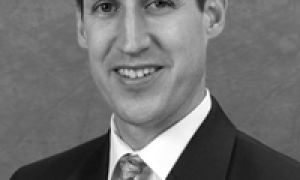It's been 33 years since America got rid of the draft and moved to an all-volunteer military. Is it time to return to the days of conscription?
Rep. Charlie Rangel, D-N.Y., thinks so. He plans to hold hearings soon after the new Congress convenes in January.
For years, Rangel has been saying wealthy Americans are "absent" from the military. More recently, he dismissed any sense of duty in America's youngest generation.
"If a young fellow has an option of having a decent career, or joining the Army to fight in Iraq, you can bet your life that he would not be in Iraq," he said on "Fox News Sunday" on Nov. 26.
This is a bizarre slur on the volunteers in uniform. Class warfare rhetoric is a staple of liberals, but it is stunningly insulting when applied to the integrity of American troops engaged in real warfare. Rangel is talking about people in the profession of arms, men and women who believe it to be the most honorable path in life.
The pernicious myth that the armed forces are filled with stupid soldiers has got to stop. It spews from Michael Moore's film, Fahrenheit 9/11. It slipped out in John Kerry's botched "joke." And it has been echoing around the Left unchallenged for too long.
At the heart of this debate is a fascinating question: Is America a nation of victims or a nation of heroes? Is it so hard to imagine a young, intelligent person choosing to fight for freedom abroad?
In 2005, some 80,000 young adults enlisted in the Army, and they came from some surprising places. From 2003 to 2005 -- i.e., after the Iraq War began -- the richest one-fifth of the population was overrepresented in the military at 23 percent. Meanwhile, the percentage of recruits from the poorest neighborhoods dropped from 18 percent in 1999 to 14 percent in 2005.
Today's troops also tend to be better educated than the public at large. Scores on a military aptitude test show that "enlisted members tend to have higher cognitive aptitude than the civilian youth population," according to a 2004 Defense Department study.
Pressed by interviewer Chris Wallace, Rangel simply dismissed this evidence without rationale, then made a new claim: Nearly all recruits "come from communities of very, very high unemployment."
Not so.
New York has a disproportionately low enlistee-population ratio of 0.72 (28 percentage points lower than the national average) and a relatively low unemployment rate as well. Montana, however, has an even lower unemployment rate but has the highest military enlistee-population ratio of any state -- 1.57.
Overall, the correlation between unemployment and enlistment rates among all states is negative, not positive (a statistically insignificant minus 10.7 percent).
Rangel also argues that war is less likely under a draft because policymakers wouldn't want to put their own loved ones in harm's way.
Really? In the last 60 years, America has fought two wars (Korea and Vietnam) with conscription and two wars (the Gulf War and the Iraq War) without. There's simply no substance to the argument that a draft keeps the peace, but it must be said that "draft wars" were fought with higher troop levels -- and higher casualties.
America's military leadership adamantly opposes a new draft. The generals and admirals argue that a draft would weaken mission capability and create enormous structural and management problems.
But even if all the fictional claims about a draft were true, the philosophical problem remains: Coercing service harms individual liberty.
Watch for Rangel and his colleagues when they spin around the firestorm over this issue by reframing the project as "national service." That, too, would be inauthentic, coerced volunteerism.
Americans will sometimes accept restrictions on their liberty, but only to advance the common good. Hence, speed limits and gas taxes. Empowering government to oversee and restrict the employment of all young Americans for two years isn't consistent with common-good restrictions.
Incoming Democratic leadership in the House of Representatives have distanced themselves from Rangel's draft idea, going so far as to say that the Ways and Means committee he will chair has no jurisdiction on the matter. But they miss the point. If Charlie Rangel is serious about making sure everyone "shares the sacrifice" equally, then he can call for a flat tax. Better yet, he can put a stop to special interest tax breaks and expenditures coming from his committee. He can advocate for higher military pay.
As for the draft, the president, Congress and new Democratic leadership need to repudiate the idea, as well as the notion of mandatory volunteerism. When you think about it, reaffirming individual liberty at home couldn't be more appropriate. It's what our troops are fighting for all around the world.
Tim Kane is the director of the Center for International Trade and Economics at the Heritage Foundation.
First appeared in FOXNews.com



